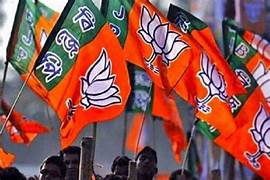New Delhi: After a long wait of nearly two and a half decades, the Bharatiya Janata Party (BJP) has finally won Delhi, a state that had eluded them for years. Under the leadership of Prime Minister Narendra Modi, the BJP has seen continuous growth across various states, and this Delhi victory further strengthens their national influence. Despite facing defeats in the last three Delhi Assembly elections, where Arvind Kejriwal’s Aam Aadmi Party (AAP) dominated, the BJP succeeded this time in overcoming AAP’s stronghold. Modi’s victory strategy ultimately triumphed over Kejriwal’s steadfast control of the capital.
ALSO READ: Tension Rises in BRS and KCR Family After AAP’s Defeat in Delhi
BJP Faces Historic Setback in Delhi: Modi Reflects on Challenges
Prime Minister Modi had hoped that the BJP’s victory in Delhi would be more achievable after his second term as Prime Minister, especially after the party’s strong performance in national elections. However, despite securing more than 50% of the vote share in the 2015 Lok Sabha elections, the BJP struggled to clinch Delhi. The party’s continued frustration with this outcome was evident after the 2020 elections, where Kejriwal once again led AAP to success. Despite Modi’s relentless efforts, the BJP’s strategies ultimately failed in the face of Kejriwal’s leadership in the capital.
In the 70-seat contest, AAP secured 62 seats, demonstrating the magnitude of their victory. This marks a significant challenge to the BJP, and Kejriwal now emerges as a direct challenger to Modi at the national level, setting the stage for intensified political competition.
READ MORE: Bandi Sanjay Reacts to Delhi Election Results, Confident of BJP’s Success in Telangana
Kejriwal Expands National Influence
Kejriwal’s ambitions have grown beyond Delhi, with his campaign expanding to other states such as Gujarat, Goa, Himachal Pradesh, Uttarakhand, and Punjab. His successful formation of a government in Punjab has further solidified his national stature, with AAP’s influence growing steadily across the country. The rivalry between Kejriwal and Modi has now moved to the national stage, and the BJP is focused on countering Kejriwal’s rising influence, particularly in Delhi.
Meanwhile, the liquor scam case involving Kejriwal has become a significant weapon for the BJP, and this issue played a major role in their victory. The BJP is also looking to expand its reach in southern states, including Telangana, Andhra Pradesh, and Karnataka, in the upcoming elections.
ALSO READ: BJP Clinches Victory in Delhi Assembly Elections: Key Factors Behind the Win
BJP’s Winning Formula: Modi’s Leadership and Strategy
Political analysts have highlighted the BJP’s consistent strategy of reviewing past defeats, regrouping, and returning with renewed vigor, which has contributed to their success in several states. Notable victories in Odisha, increased support in West Bengal, and growing influence in southern states have helped the party gain ground.
These victories can be largely attributed to Prime Minister Modi’s leadership, who remains one of the country’s most popular political figures. Modi’s strategic approach has firmly established him as the face of the BJP, driving its success across India.
PM Modi Reflects on the Delhi Election Outcome
In response to the Delhi election result, Prime Minister Modi acknowledged the significance of the saffron flag flying across the country. He observed the unique electoral dynamics in Delhi, where voters have an emotional connection to Kejriwal, which contributed to his continued success. Modi emphasized that Delhi’s voters, with their openness and warmth, are willing to support a leader who resonates with them, irrespective of political affiliation. He also noted that those who had supported Kejriwal in 2015 and 2020 have now shown their deep commitment to the BJP, ultimately helping the party secure victory.






